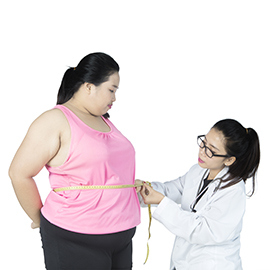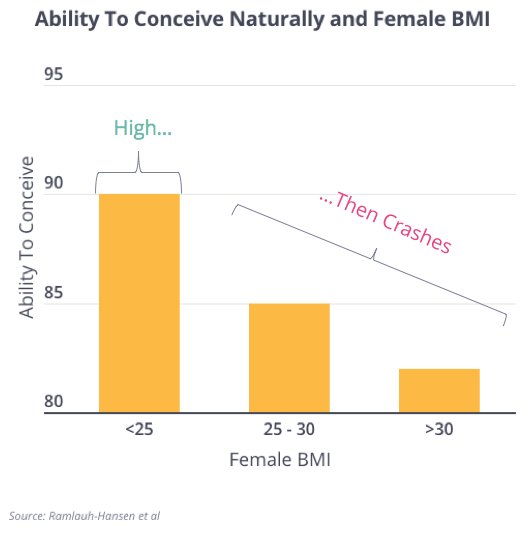We are living in abundance; diverse gourmets, oversized portion, various deserts, overflowing drinks, copious sugar, and numerous junk food! This certainly has influenced our diet and we’ve noticed one too many overweight people around us. Now obesity has emerged as a serious health problem among rich countries.
In the meantime, ironically, we’ve got obsessed with our weight. Often enough we hear ‘I’m on diet’ or i’m too fat’ from our friends, and we see anorexia. In search of remedy, some pundits advocate idiosyncratic diets.

It’s a high time to look into the relationship between body fat and fertility.
Let’s use BMI, Body Mass Index (BMI), which is a function of a person’s weight (in kilograms) divided by their height (in meters squared). While BMI has its imperfections (like the inability to distinguish between fat and muscle) it’s often an excellent proxy for body fat in most people and, unlike just using weight, takes into account a person’s height.
The consensus among experts is that both being overweight and underweight impact the quality of a woman’s eggs and potentially the quality of uterine lining and the ability to carry a pregnancy.
FertilityIQ

- Natural Conceiving
Generally speaking a “normal” female BMI is 18 – 25 but because being too light can impact a person’s ability to conceive, the ideal range for hopeful parents is 20 – 25.
- Fertility Treatments
When a couple undergo IVF, there is clearly a tight inverse correlation between a woman’s rising BMI levels and diminishing odds that any given IVF cycle will work.
Now one could ask; what will be the best diet to optimize my fertility?
We will talk about this in the next posting, but it’s advised to keep a balanced diet maintaining BMI between 20~25. Some recent popular diet like Keto and Paleo are not beneficial to our reproductive health.

